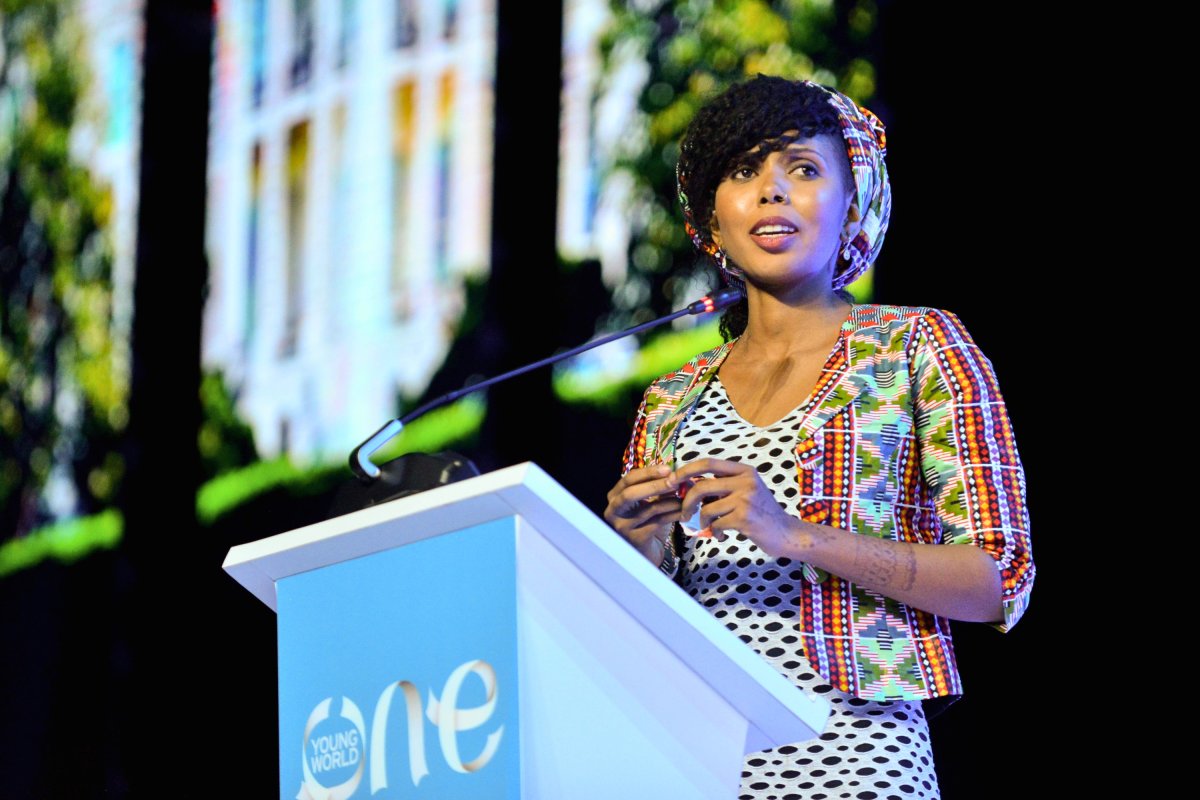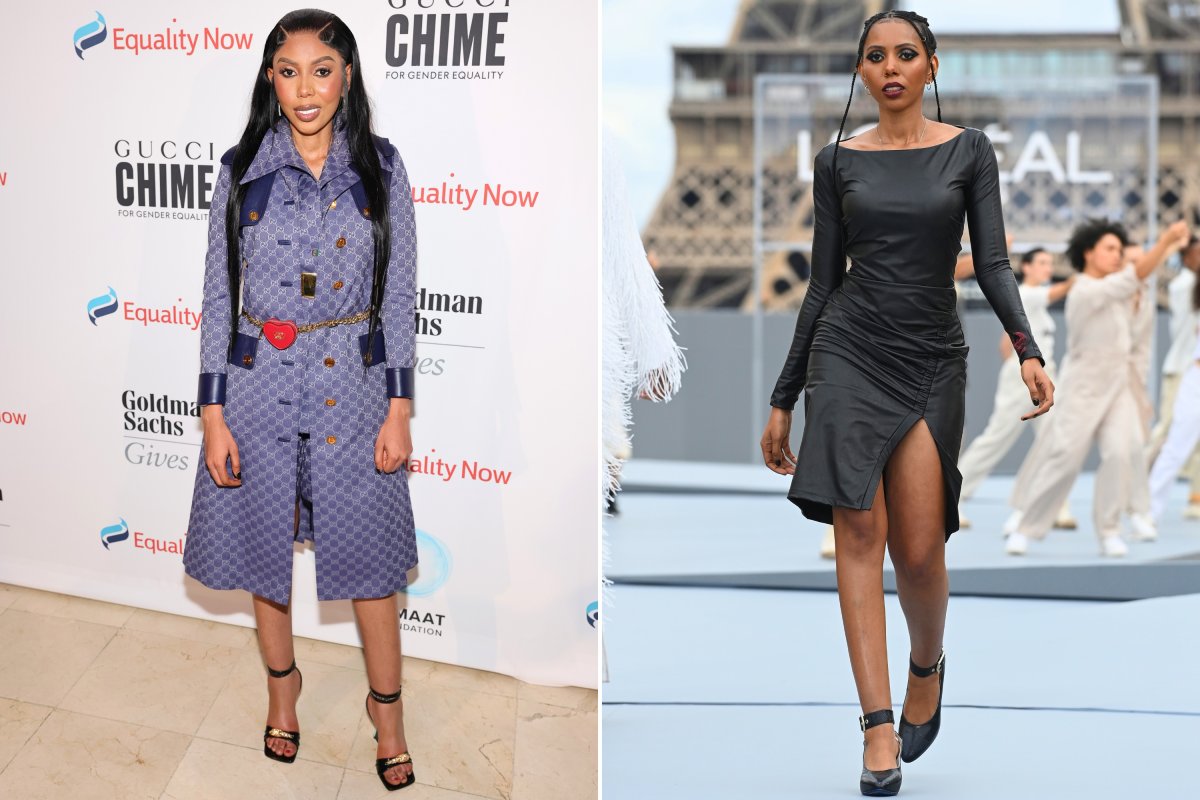I went through female genital mutilation—FGM—when I was one week old, so I don't remember the experience itself. But I had the most severe form: Excision, which is the removal of parts of the clitoris, and infibulation, which is the sealing of the vagina.
Most of my memories are from the trauma and experiences in the years after as I grew up and realized what had happened to me. I was twice a child bride, and I later had surgeries to reverse the FGM.
I first got married at 15 and then again at 17. I was scared of intimacy; it was painful because of the procedures I'd been subjected to. So I began to associate sex with pain rather than pleasure. It wasn't until my late twenties that I understood women can experience pleasure too.
I've dedicated my life to fighting against FGM. I led the campaign to get it banned in my birth country of Gambia in 2015. There are 200 million women around the world who have been subjected to this practice and a lot of them don't make it as far as I have, or get the platform I do.
When I gave birth to my daughter, I had a lot of anxiety about her life and what it would look like. I felt that I needed to speak about my experiences, and that it was important to put a human face and voice to the FGM issue.
I ran away from my first marriage and went through high school in New York. While I was married to my second husband, I went to college and ended up working as a banker at Wells Fargo for six years.

I founded my anti-FGM organization and over the years I've done consultancy work for the World Bank, and some regional work at the Africa Union Commission. Aside from that, I've modelled for L'Oreal and worked with Gucci.
I do everything. A lot of people don't understand why I do all these different things. But there's a reason.
Girls like me don't make it as far as I have. It's important for young women in my community to look at me and say that, despite everything she has been through, she was able to make something out of her life and I want my child to be just like her.
Often when people hear about FGM, they're thinking in stereotypes: All those barbaric Africans over there. They don't realize that people who look and sound just like me are the ones going through FGM.
It could be your neighbor or a friend from school. Someone familiar.
Initially, I started campaigning because I was frustrated. I was frustrated that no one in my own family would listen to me, and most of the people in my community were judging me, all while I saw young girls like me suffering from this practice.
When I first started, I was an outcast. I couldn't even attend family events like weddings without feeling that everyone was watching and talking about me.
I was lucky to receive support both personally and professionally from the One Young World global community when I needed it the most. They connected me with like-minded young leaders from all over the world and provided me with a platform on the global stage, which made me believe I could actually change the world.
A lot has changed. After Gambia's FGM ban, and since I was nominated for the Nobel Peace Prize—the country's first-ever nominee—I'm celebrated as a national hero.
Some people still think my work is about fighting Islam, or that I'm trying to stop people practicing what they see as their religious or cultural rights. But I think many people in Gambia have seen the impact our work has had and because of that, they celebrate it.
Most of the negative comments I get online are from men who have no clue what they're talking about. I cannot understand why these men think that putting someone through FGM is a good thing.
But I also hear women who tell me all your FGM experiences do not reflect mine. They say they have no problem with sex, or giving birth, or infection. I hear that a lot. I'm not saying their experiences are false, but they also don't take away from the views and lives of those who disagree with FGM.
One thing I want to make clear is, in my view, FGM isn't so different from the procedure labiaplasty, which you can find in the US and other places. Women are choosing labiaplasty because that's what they're seeing in porn and they perceive it as the ideal of what the female anatomy should look like.
Fundamentally, it's about telling women and human beings that they're not good enough unless they do something for us. It's still cultural. In places like the US, people are paying plastic surgeons to do it. We need to have a holistic view of this problem.
I have a real problem with how NGOs and development agencies have operated in the FGM space. They come into communities and pit organizations against each other for little money.
I don't believe that most of the development agencies I've come across really care about these issues. To most of them, it's just a job. They hire consultants to come into our communities and prepare all these fancy reports.
At the end of the day, they do not understand the impacts of these issues and what it actually takes to bring change into our communities. When you try to appeal to them and talk with them, often they see you as a troublemaker or difficult to work with.
For me, this is not a job. Ending FGM is not just some issue that's a UN Sustainable Development goal, or the UN says we have to end it by 2030, or the World Health Organization says something else—it's about my people, my future, my continent.
And it goes beyond FGM. There are a lot of issues that we continue to see in our communities where agencies come in and say they're doing all sorts of work, and then you realize: Who actually benefitted from what you're talking about?
The money that all of these countries have given—how do we make sure it goes where it's supposed to and not just on salaries, travel, and consultancy fees?
Another frustration is that FGM is a traditional, cultural issue. It can't be ended in a similar way to other issues.
In Liberia, for instance, where I was recently under my role as UN Women Regional Goodwill Ambassador for Africa: In order for them to enact a ban on FGM, according to their traditions and practices, they must sacrifice animals to appease their ancestors.
When you go and explain this to International development partners, or NGOs, or agencies, nobody gets that. They see it as a form of corruption.

To solve these problems, if we truly care about ending these practices like FGM, we need a combination of understanding the communities we work in and tolerance.
FGM is wrong. I've been through it so I can say that for certain. There is nothing good that comes out of FGM.
But what is misunderstood or underappreciated is just what this practice means to some communities, and even within Africa the differences between countries and tribes. In Gambia, for example, it's a religious thing. But in Liberia, it's a cultural one.
It's also often an economic issue. When you take FGM away, you're removing more than culture. For a lot of these women, you're taking away their power and status in their communities—and how they earn money.
What do you provide for them as an alternative means of income?
That's why it's important for us to invest in women and in communities, and allow people who understand and have lived experiences to lead those solutions. I think that's where the problem lies.
I'm at a place in my life where I just can't do it anymore. I don't want to work on FGM. I'm tired of trying to make the same case over and over. Our work has been very, very effective in our communities. UN figures show FGM numbers are slightly going down for girls under the age of 15.
That's what we have prayed for, for decades. Yet still, many people continue to talk about FGM like it's still the problem it once was. They don't want to do what's right.
I've dedicated enough of my life to FGM. That's why I'm doing a lot of gardening and farming initiatives. I realized that that's how we can create a sustainable future where we leave FGM behind and build a solid economic foundation for these women and their communities.
I look at myself as a good example. When I was younger and thinking about my mother, my siblings, and women in our society who were married, I realized that they don't have power in a lot of situations. And that's because they didn't have money.
But now I'm unmarried and I live by myself. If I didn't have the money I've made, I could never have the independence that I do.
I'm working with women who I can see have been severely abused. I ask them: Why do you stay?
What they tell you is: Where would I go with my children? Who is going to take care of me if I go back to my father's house?
So the only way we are going to end violence against women and girls—and it's not only about FGM—is by uplifting women out of poverty.
We can do that in part through regenerative agriculture. We have the tools we need for this in Africa. It empowers women to grow not only what they need, but other high-value produce, depending on the season.
I want my own work to be sustainable. I don't want to depend on grants. I've been through FGM and child marriage. These issues are very personal to me. Every time I go to someone and ask for a grant, it feels like I'm begging them.
The new generation of Africans on this continent needs to be less reliant on aid and figure out how to fix our own issues—and I think we can do that through agriculture.
If this model of sustainable agriculture works for FGM, it has huge potential for other issues, too.
Jaha Dukureh is a One Young World ambassador and founder of Safe Hands for Girls, a women-led organization fighting FGM and child marriage.
All views expressed are the author's own.
As told to Shane Croucher.
Do you have a unique experience or personal story to share? Email the My Turn team at myturn@newsweek.com.
Uncommon Knowledge
Newsweek is committed to challenging conventional wisdom and finding connections in the search for common ground.
Newsweek is committed to challenging conventional wisdom and finding connections in the search for common ground.
About the writer
Jaha Dukureh is a One Young World ambassador and founder of Safe Hands for Girls.
To read how Newsweek uses AI as a newsroom tool, Click here.








